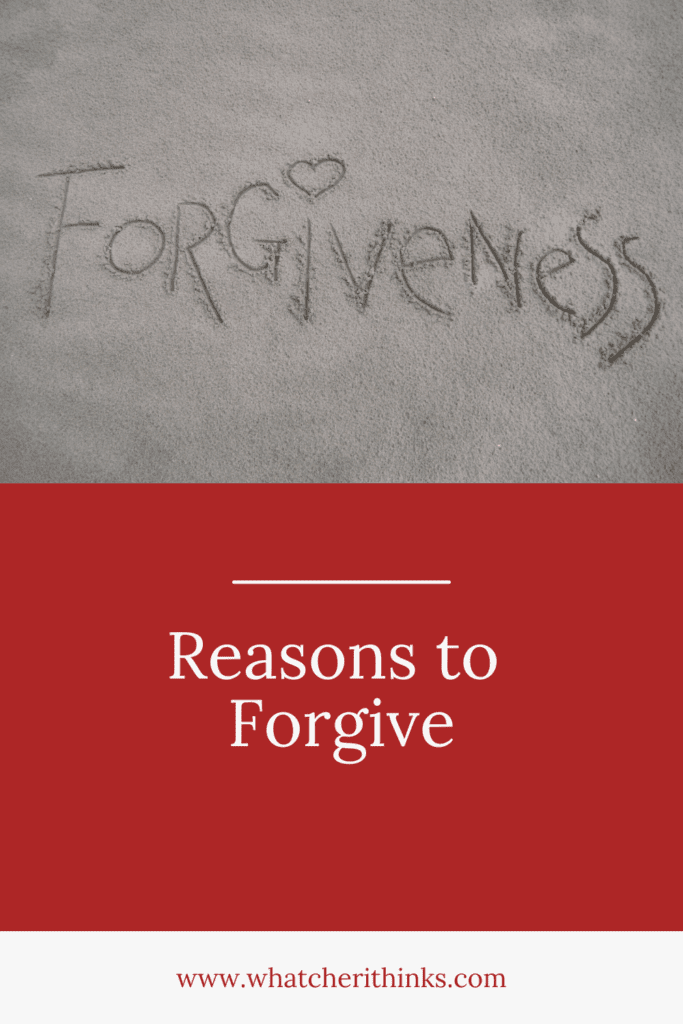Steps to Forgive: A Simple Approach to Releasing Grudges and Finding Peace
Steps to Forgive: A Simple Approach to Releasing Grudges and Finding Peace
Blog Article
Comprehending the Value of Mercy in Healing Relationships
Forgiveness is often deemed a basic act of releasing, yet its value in recovery relationships expands much past simple absolution. It works as a crucial system for emotional launch, allowing individuals to navigate the complexities of discomfort and resentment. Comprehending the nuanced distinctions between mercy and settlement can brighten the course toward healthier communications. As we discover the complex advantages of forgiveness, one have to consider exactly how these principles can transform not just personal partnerships but also the more comprehensive social textile. What remains to be uncovered is the extensive impact forgiveness can have on individual development and public consistency - The importance of forgiveness.
The Meaning of Mercy
Although forgiveness is often perceived as a simple act of allowing go, its interpretation incorporates a complicated interplay of emotional and psychological processes. At its core, mercy is the conscious choice to launch feelings of animosity or revenge toward a specific or group that has caused injury. This process is not just concerning absolving the wrongdoer; rather, it involves a profound psychological transformation that can result in individual growth and healing.
Forgiveness is multifaceted, commonly defined by a person's interior battle to reconcile their pain with the desire for peace. It needs identifying the wrongs dedicated, refining the connected emotions, and inevitably deciding to progress without the burden of displeasure. This choice frequently involves a cognitive shift, where one reframes their understanding of the transgression and the wrongdoer, enabling empathy and comprehending to arise.
Significantly, mercy does not indicate excusing the behavior or forgetting the crime; it is a deliberate act that focuses on emotional wellness. By specifying mercy in this way, we can appreciate its role in assisting in healthier partnerships and cultivating emotional durability, setting the stage for deeper expedition into its benefits.
Emotional Benefits of Forgiveness
Forgiveness supplies significant emotional advantages that can exceptionally influence a person's psychological health and wellness and overall wellness. When a person picks to forgive, they actively launch feelings of temper, bitterness, and animosity, which can or else create a heavy psychological concern. This release frequently results in a reduction in stress and anxiousness, advertising a sense of tranquility and emotional stability.
Additionally, forgiveness promotes a raised capacity for compassion and empathy. By comprehending the point of view of the offender, people can grow a much deeper emotional durability, which improves their ability to cope with future difficulties. This process not just boosts emotional guideline yet also adds to a more positive expectation on life.
In addition, flexible others can strengthen one's self-worth and self-regard. It permits people to recover their personal power, damaging devoid of the unfavorable cycles of victimhood - The importance of forgiveness. This newfound empowerment can bring about much healthier emotional actions and stronger social partnerships
Forgiveness vs. Reconciliation
The distinction in between mercy and reconciliation is important in comprehending the dynamics of healing partnerships. Mercy is an interior procedure where a specific picks to let go of bitterness and adverse feelings towards a person who has actually a knockout post triggered damage. It is mostly a personal trip, concentrated on emotional launch and self-healing, enabling one to move on without carrying the burden of previous grievances.
On the other hand, settlement involves rebuilding and restoring the partnership to a state of depend on and mutual respect. This process often calls for open communication, active participation from both events, and a dedication to dealing with the underlying problems that brought about the conflict. While mercy can occur individually, settlement demands the desire of both individuals to participate in dialogue and pursue a shared understanding.
It is crucial to note that forgiveness does not always lead to reconciliation. An individual might forgive an additional without opting to bring back the relationship, particularly if count on has been irrevocably damaged or if the partnership is deemed undesirable. Understanding this difference enables individuals to navigate their feelings properly and make check informed decisions regarding visit site their partnerships.
Steps to Cultivate Forgiveness
Cultivating mercy is an intentional process that involves several vital steps focused on facilitating psychological recovery. The primary step is recognizing the pain brought on by the violation. Identifying one's sensations is essential, as it allows individuals to refine their feelings genuinely.
Following, assessing the event and comprehending its influence can offer clearness. This reflection must consist of examining the motivations behind the wrongdoer's activities and identifying that everyone is imperfect.
The third step includes making a conscious decision to forgive. This decision is important, as it symbolizes a willingness to allow go of resentment and move forward.
Ultimately, revealing sensations in a constructive manner can be helpful - The importance of forgiveness. Whether through journaling, speaking with a trusted friend, or seeking treatment, articulation of feelings can help in the mercy journey
Real-Life Instances of Mercy

In another instance, a close-knit team of good friends dealt with a substantial rift after one participant inadvertently shared a private trick. Rather than nurturing bitterness, the affected good friend determined to forgive, comprehending the value of valuing the relationship over the mistake. This choice urged open dialogue and ultimately strengthened their link.

Verdict
Finally, mercy plays an essential duty in the healing of partnerships by assisting in the launch of unfavorable feelings and promoting compassion. By comparing mercy and reconciliation, people can participate in a constructive procedure that enhances emotional well-being. Implementing actions to cultivate forgiveness can cause transformative results, strengthening links and promoting a helpful environment. Inevitably, the method of mercy serves as a driver for individual development and the nurturing of healthier social characteristics.

Report this page